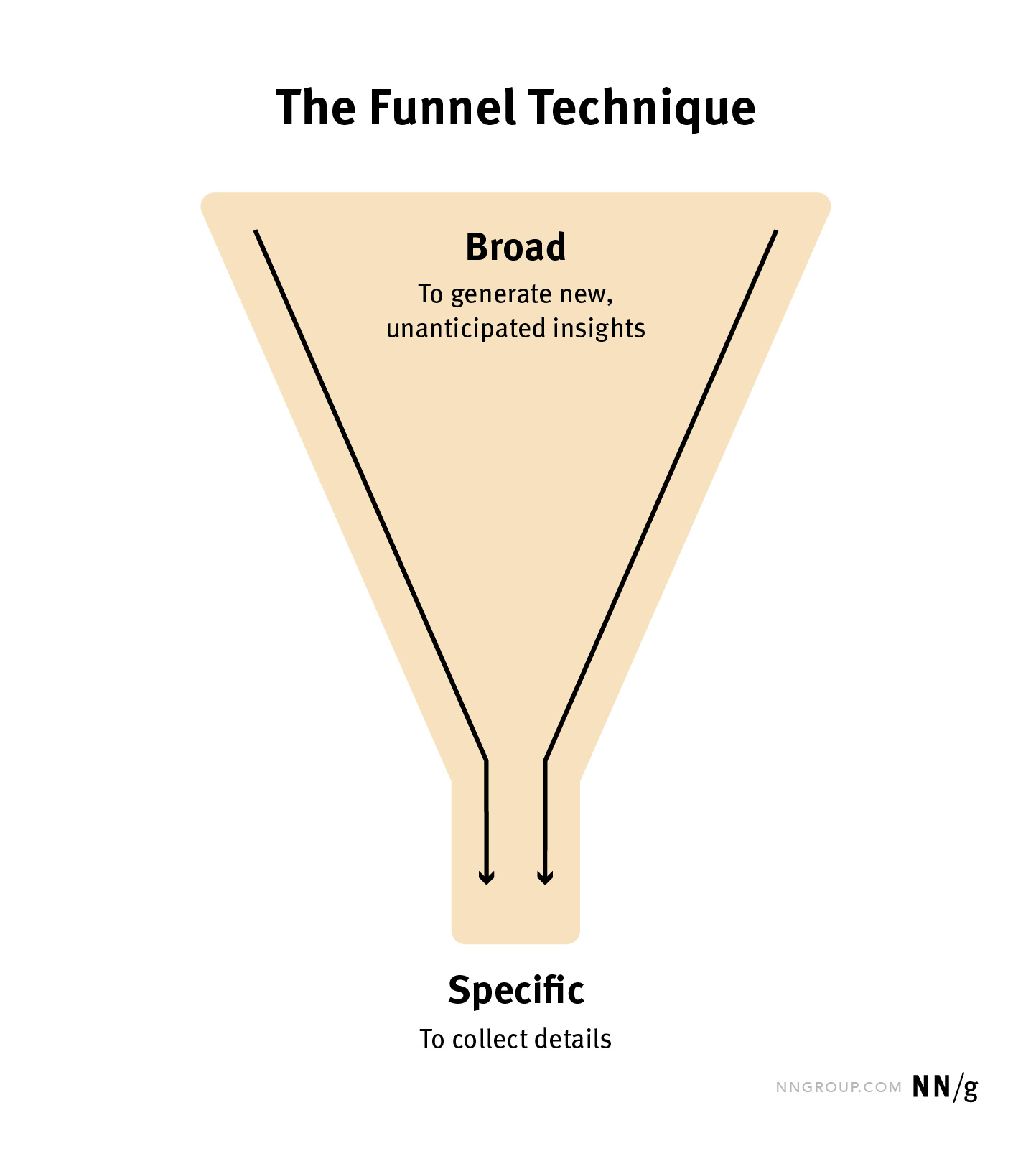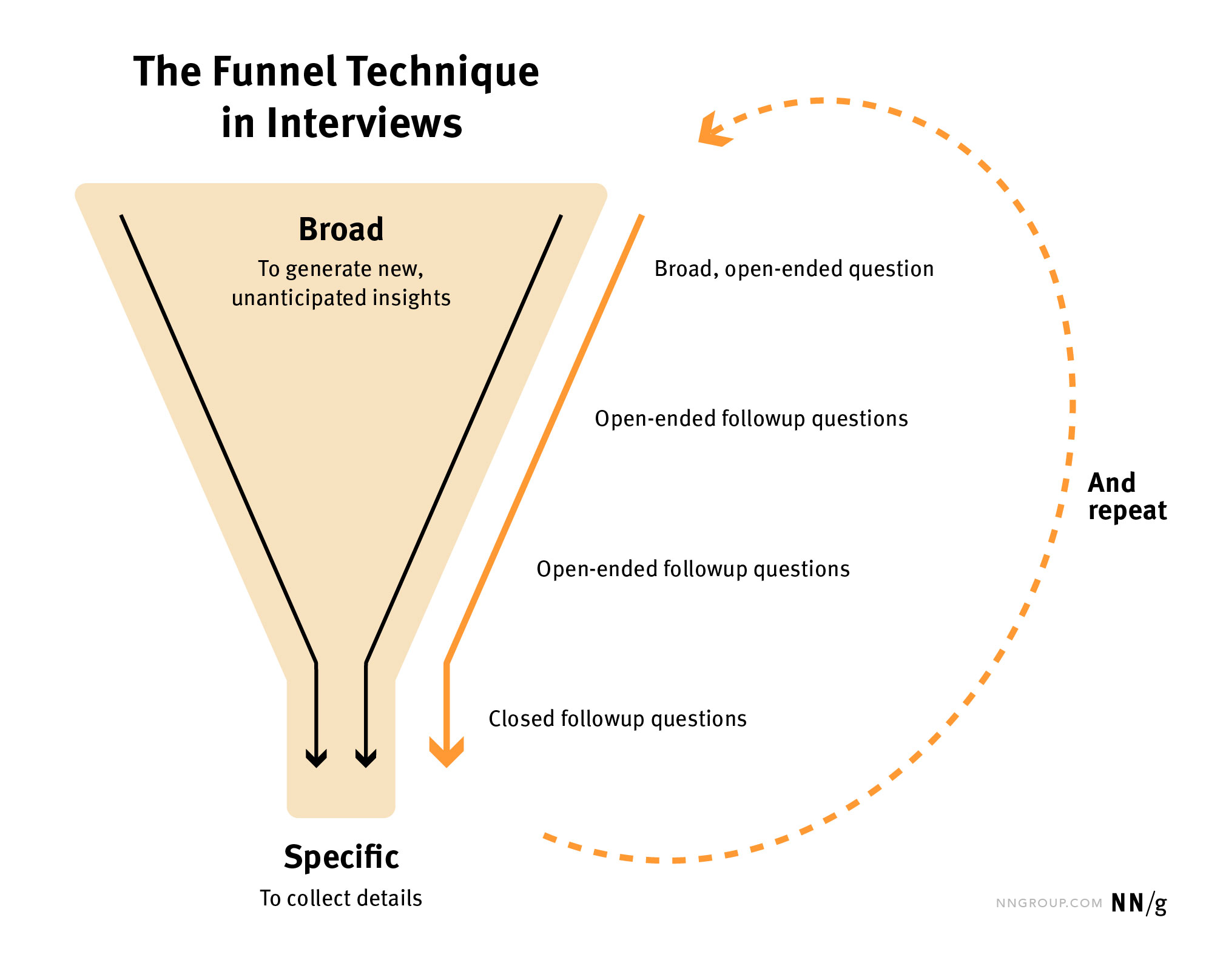How to Conduct Effective User Interviews
Overview
- User interviews are essential UX research methods.
- Sessions involve 1-on-1 question-answer formats.
- A clear goal and plan are paramount.
- The purpose is to collect qualitative, self-reported data.
- Focus is on users' words over their actions.
- Listen actively for problems or pain points related to research objectives.
- They assist in defining personas and determining features.
Preparing for the Interview
Set Clear Goals
- Determine specific objectives to keep the interview focused.
- Example: Understand millennials' attitude towards expense tracking and saving.
Recruitment and Planning
- Recruit participants.
- Organize logistics to ensure participants are in a relaxed and neutral setting.
- Recording is recommended but:
- Always ask for permission to record.
- Hand-written notes might make the interviewee uncomfortable.
- Prepare questions in advance.
The Funnel Interview Technique
- Start with broad topics and narrow down.

- Avoid bias and capture all essential data.

- Use 5-8 open-ended questions followed by follow-up queries.
- Begin with general questions and probe for details.
Interview Etiquette
- Begin with a human connection; avoid being transactional.
- Offer a warm opening statement.
- Example: "Hi, I'm Ali... Do you have any questions before we begin?"
- Provide context for your questions.
- Ensure participants feel acknowledged and valued.
- Avoid technical jargon.
- Conclude by allowing them to ask any questions (the doorknob effect).
- Establish rapport; inquire about their background gently.
- Speak less, listen more.
Crafting Objectives
- Clearly define objectives for actionable insights.
- Example: How and why do millennials trade stocks? (Potential answer: Building personal wealth).
- Avoid overly broad or narrow questions.
- Remember: Objectives -> Business Questions -> Research Questions.

During the Interview
- Be adaptable with the questions and their sequence.
- Limit interviews to one hour.
- Practice with team members through role-playing before actual interviews.
- Embrace a humble attitude, aiming to learn from the participant.
- Video calls are often preferred for remote interviews.
References
- The Funnel Technique in Qualitative User Research
- How To Conduct User Interviews Like A Pro (UX Design)
- User Interviews 101: A Practical Guide to UX Research Interviews
- How to Conduct a User Interview for UX Designers (in 10 Minutes) - FREE Template Provided
- How To Conduct User Interviews (UX Design)
- Using the Funnel Technique in User Interviews